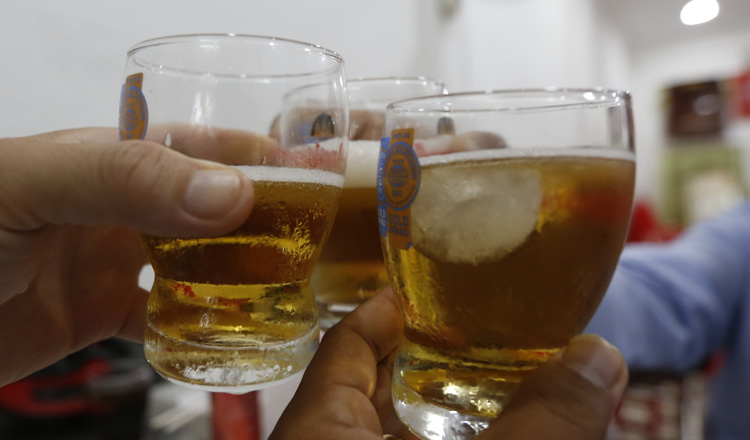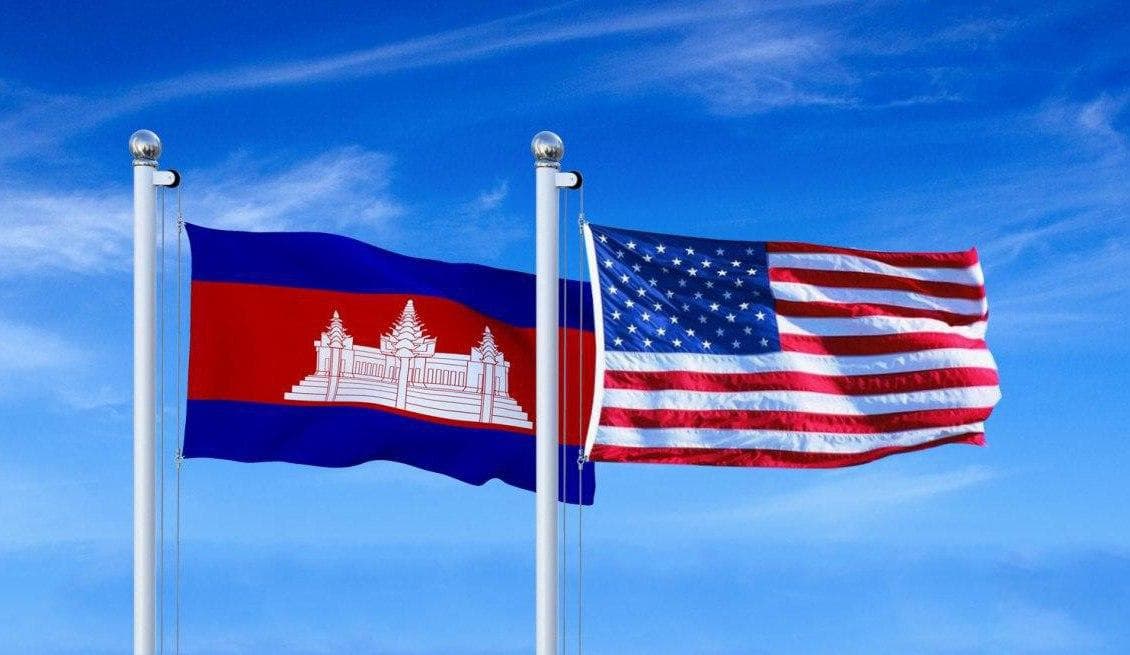Draft alcohol law: Striking a balance between health and revenue
In 2015 and 2016, a series of health reports regarding the consumption of alcohol and its effect on society raised questions about the lack of an alcohol law in the Kingdom, amid which the government began drafting what would be its first ever enshrined liquor legislation.
The first report, by the World Health Organisation in 2015, detailed the extent of drinking among youths in the Asean region and evidenced the rising prevalence of alcohol use among Cambodians.
A survey estimated that of citizens aged between 10 and 19, 81.4 percent of males and 57.6 percent of females had reported drinking alcohol.
The report said of these statistics: “8.09 percent of females and 1.11 percent of males identified themselves as heavy drinkers. The higher number of female heavy drinkers is due to many working in karaoke bars or nightclubs, where they are required to drink with their customers.”
It also stated that there was a further plethora of reasoning behind alcohol consumption among that age group, with both personal, peer, family and societal pressures playing a part in encouraging young people to drink.
Some stated they felt the pressure of exams or having an argument with family, friends or lovers caused them to the bottle. Others said drinking allowed them to demonstrate loyalty and trust between friends, meant social inclusion or helped them look trendy or healthy while a worrying trait among some young people was that they simply didn’t know the health risks associated.
Alcohol use was also linked to early sexual debut, unsafe sexual practices and violence within that age range, the report added.
The second report in 2016 by The Asia Foundation, which was part of the Preventing Intimate Violence Project, was produced to study in detail the alcohol industry in Cambodia and its linkages to concerning statistics regarding violence against women, as one in five ever-partnered women reported experiencing physical or sexual violence.
Indeed, the report found that alcohol consumption has many detrimental effects on Cambodian society, particularly for women.
“It is responsible for more than 60 major types of diseases, including cardiovascular disease, cirrhosis of the liver, cancer and sexually transmitted diseases including HIV/AIDS and many unintentional deaths and injuries as seen through the large number of alcohol-related traffic accidents,” it said.
Relaxed measures
The report also attempted to explore rules and regulations surrounding alcohol use in Cambodia, but found there was little regulation of the alcohol industry or over the advertising of related products and very few, if any, measures in place to protect consumers.
“There is no minimum drinking age, no limitations on the sale or advertisement of alcohol and Cambodia has some of the lowest taxes on alcohol products in the region.”
“Although there is a blood alcohol limit for driving and a directive banning alcohol advertisement during peak night-time television and on some national holidays, enforcement is inadequate and there are no health warning requirements on any alcohol or in any alcohol advertisements,” the report said.
The report evidenced, particularly regarding advertising, how it influenced young people and their idea of alcohol consumption as being trendy and socially acceptable.
However, despite the rising levels of alcohol consumption forecast from their research, five years on, the draft law is still not finalised and is instead sitting with the Health Ministry.
When contacted by Voice Of America in 2019 regarding the draft, lawmakers, officials and stakeholders could not specify why the adoption of the law was taking so long.
The media outlet reported Health Minister Mam Bun Heng as saying the law would be introduced in the next few years and Cambodian People’s Party lawmaker Lork Kheng, who is on a parliamentary commission involved in the process, wasn’t able to give a timetable on the process either, stating further stakeholder consultation was needed.
Blurry vision
Although still in draft stage, the law itself stipulates a minimum drinking age of 21 with retailers who violate the law culpable for fines of an as yet undisclosed amount. It also proposes limitation on advertising. However it does not outline what the specifics of these will be; one would assume that they will be in line with more global laws such as the inclusion of health warnings.
The draft law also states that the sale of alcohol would be prohibited between midnight and 6 am, with again the assumption of fines for retailers breaking this law.
The proposed changes would remarkably see Cambodia jump from a country with one of the most relaxed alcohol laws in Asean to among the strictest, trumping neighbours Thailand, Laos and Vietnam who have drinking ages of 20 and 18 and no minimum requirement respectively.
ABV versus GDP
Currently, the alcohol industry contributes around $30 to 40 million annually and with over 50 percent of Cambodia’s population being under 21, the ban would significantly reduce tax revenue earned from the sector. It would also raise questions within leading alcoholic beverage companies about continued investment and involvement in Cambodia, given more relaxed laws nearby.
Equally, as Cambodia tries to recover its tourism sector, strict alcohol laws are sure to be a deterrent for young travellers who are weary of laws and policing in the Asean region. If Cambodia approaches the policing of alcohol in the same way as it does traffic violations, by incentivising it for police by allowing them to keep part of the amount in fines, the thought of police circling bars looking to fine revellers doesn’t make for an appealing night life. Not to mention, any sensible traveller knows to leave their passport at their hotel to avoid the nightmare of losing it, so it further raises question marks about how people can identify their age.
Cambodia doesn’t need to look far to see the impact of introducing new alcohol laws, as Movendi media reported this year that since Vietnam introduced a new set of liquor laws, which came into effect earlier this year, beer sales have gone down by 25 percent with some bar managers in Hanoi reporting that customer numbers dwindled to 20 percent of their usual footfall.
In Cambodia, one option to attempt to make up lost revenue could be higher taxation on alcohol products.
However, not pricing out consumers in the process would be a difficult line to tread with the potential to turn people towards cheaper, untaxed alcohol such as rice wine, which can be dangerous and sometimes deadly.
Perhaps most likely to suffer would be the small businesses, suppliers, beer promoters, street stalls and the like, who rely on beer sales to support their families and livelihoods across the country.
The local effect
The Asian Foundation report noted: “For the majority of small producers [60 percent] interviewed, alcohol production accounted for 40 percent of their income, whilst for the remaining 40 percent, alcohol accounted for more than 40 percent of their income.” Although concrete figures cannot be made regarding what portion of income they would be set to lose if the law comes in, it will certainly have an effect.
The report also said: “Small enterprises and rice wine producers face increasingly stiff competition with more producers entering the market and changing consumer tastes already, with some producers not even aware of the draft alcohol law,” it added.
Leng Raksa, a small stall holder, says she uses alcohol sales to top up her income and is worried about the new laws.
“My husband works in construction but we have a small business at home where we sell drinks. It’s a good way to top up our income. The law wouldn’t be good for us as business is already down and lots of people aged 18, 19 and 20 come and buy beer from us during the weekends.”
Srey Buth, a beer promotion girl at a busy restaurant along the riverside in the capital, says she doesn’t know if the law will affect her job.
“At the moment, there isn’t much work around and I rely on this. Lots of friends my age have lost their jobs due to COVID-19. I am 19, so I don’t know if I will still be able to sell alcohol if I am under the age to consume it myself?” she says.
“Lots of my customers are around my age too. I also would not be entitled to out-of-work allowances, so I’m worried,” Ms Buth adds.
A 20-year-old student at the Royal University of Phnom Penh, who asked not to be named, says he drinks alcohol though in a positive way, so the law should only look to ban people from consuming it irresponsibly.
“Me and my friends drink when we socialise. We meet and dance in the park and consume alcohol responsibly. I think it’s a good way to relax, especially during the exam season when we are under a lot of pressure,” he says.
“I don’t think it’s a good thing to ban people from drinking based on age. If we consume it responsibly then it’s unfair,” he said.
The question, therefore, is the extent of the legislation and the severity of the punishments associated with its violation; ultimately striking the compromise of responsible alcohol consumption without stopping the party.
Credited: Khmer Times







